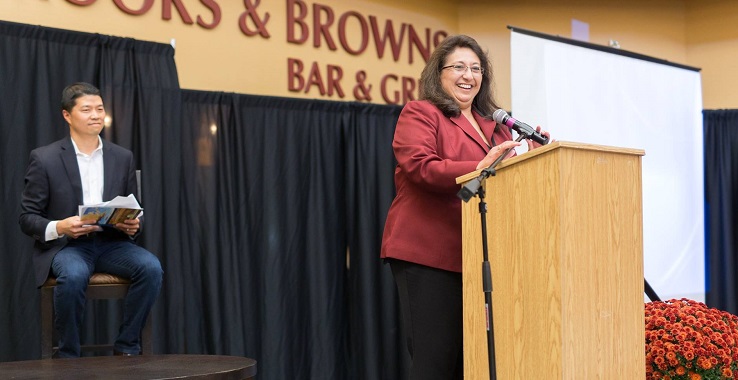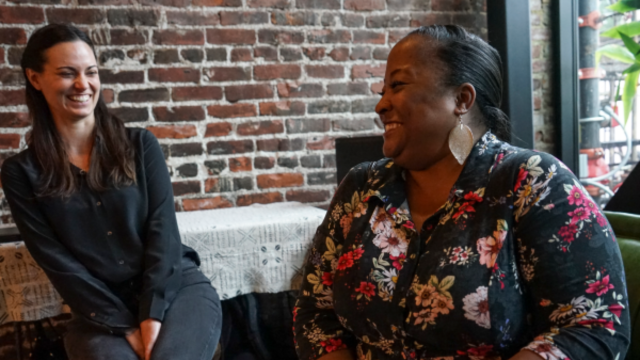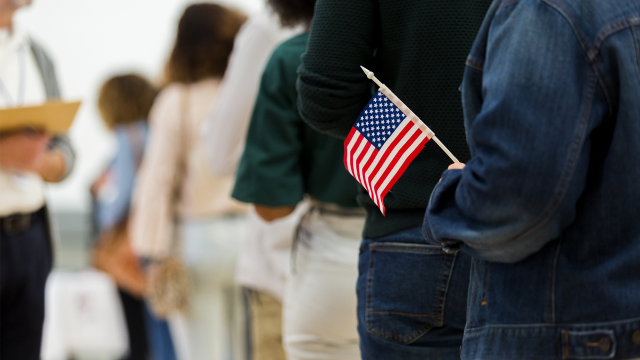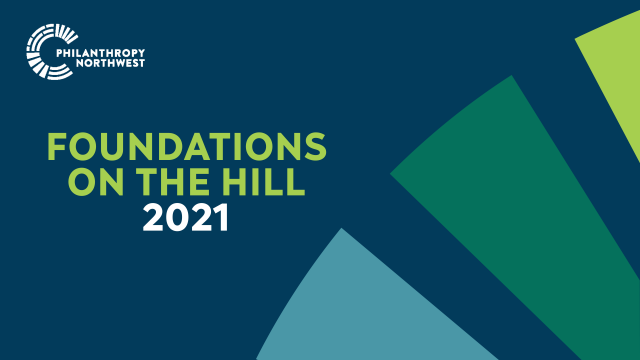At Philanthropy Northwest’s annual conference, five foundation representatives discussed the role of philanthropy in democracy and equity. As a conference co-chair and Northwest Area Foundation board member, I was asked to speak about my work in Idaho, holding Boise police accountable and ensuring they treat everyone in our community equitably and respectfully.
Police misconduct is a social justice issue that touches every community in this country. Our philanthropy sector has a role to play in supporting communities that are struggling to address and change police conduct to create more equitable and just communities. We must ensure our communities can thrive and all people can be successful in a society where all of us have the chance to live up to our full potential.
In front of Philanthropy Northwest's audience of 200 foundation and corporate giving program leaders, I spoke of growing up in southeastern Idaho, with family roots in Texas and Mexico. From an early age, I knew poverty and discrimination. My father worked hard, first as a farmworker and later as a railroad laborer. He had learned the lessons of survival at an early age and wanted to pass those lessons to his children. We were taught when it comes to law enforcement, it was always, “Yes sir, no sir.” Do what you are told — and you will come home.

I recall an incident where my father came home from work and told my mother he had been stopped by U.S. Border Patrol — again — and asked to show them his papers. He said, “I have no papers, just my driver’s license. So I gave them my license.” I knew instinctively that this was wrong and asked why they kept stopping him? He had no answer to give me, but even at a young age, I knew it was because of the way he looked, coming from south Texas, and sounded, with a slight Spanish accent. It made me angry to think he was stopped for no other reason. In elementary school, I was being taught that in this country, “All men are created equal." But our family was experiencing the opposite. I witnessed things that I complained were “not right and not fair” to myself and to my parents, but I had not yet found my voice to speak up and publicly demand our right to equity and justice.
I eventually developed my voice as I earned my law degree from Washburn University School of Law, the alma mater of the attorneys who participated in the landmark anti-discrimination case of Brown v. Board of Education. A law degree gave me some privilege creating opportunities — perhaps not with total inclusion or equity, but more than I had before earning my degree. Finally, I was at the table with policymakers, including those who made our judicial and criminal justice system work or fail. I could use my voice to articulate the negative impact the existing criminal justice system had place upon marginalized communities.
Raising My Voice
I had begun working for Idaho Legal Aid Services even before attending law school. During law school and afterwards, I volunteered for nonprofits working on civil rights, farm worker advocacy, voter registration, immigration, access to justice and more. I never stopped my volunteerism even while I built my private law practice. In 2007, based on my community service, I was asked to join the Northwest Area Foundation's board and begin working on the grantmaking side of the nonprofit world. Then, after practicing law for 24 years, the mayor of Boise appointed me, confirmed by the City Council, to became the director of police oversight for the City of Boise in 2015.
The Office of Police Oversight was created in 1998, prompted by a series of officer-involved shootings and concerns expressed by the community. My charge is to monitor and investigate police activities, hold them accountable for their policies, services and conduct.
Communities across this nation, including Baltimore, Chicago, Ferguson and New Orleans, are demanding more police oversight. We cannot have equity and justice without it, yet we have had years of little to no oversight that has perpetuated mistrust. I believe we are at a time where positive change, reconciliation, healing and solutions can be achieved. Police Chief Terrence M. Cunningham, the president of the International Association of Chiefs of Police, recently said:
“…this dark side of our shared history has created a multigenerational — almost inherited — mistrust between many communities of color and their law enforcement agencies…it is clear that we must change the future…For our part, the first step is for law enforcement and the IACP to acknowledge and apologize for the actions of the past and the role that our profession has played in society’s historical mistreatment of communities of color…It is my hope that, by working together, we can break this historic cycle of mistrust and build a better and safer future for us all.”
It is imperative to have democratic and equitable community participation in all walks of life, including philanthropy and government. We must listen, receive direction and input to measure whether law enforcement and oversight are addressing the concerns of all people and ensuring that everyone is safe, protected and served equally with respect. Foundations doing work in this area must also listen to the communities they serve, ideally with staffs and boards that reflect those communities, while they participate in finding solutions for fair and equitable community policing. Perhaps then, our society can overcome the multigenerational mistrust that Chief Cunningham describes.
Philanthropy can play a role in this journey towards healing and trust by supporting organizations and partners on the ground, building capacity in underserved, underrepresented and marginalized communities. We must ensure their voices are part of the dialogue, that they are able to advocate for and participate in creating solutions. Private-public partnerships can assist law enforcement and oversight to ensure they have the funding for the necessary trainings and research to measure outcomes and successes that can be modeled in other communities. Together, we can move towards a more equitable and democratic society, in the Northwest and nationwide.
Natalie Camacho Mendoza is a Northwest Area Foundation board member and Philanthropy Northwest's 2016 Ambassador of the Year.


